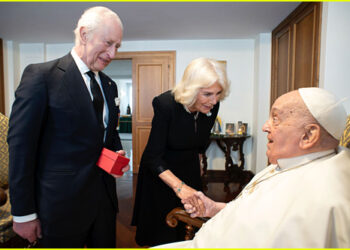As Nigeria celebrates three years without the detection of a Wild Polio Virus case, health authorities say the country is on its way to finally being awarded polio-free certification.
No case of the virus has been detected in Nigeria since August 2016. If the situation remains by March 2020, Nigeria may be certified polio-free.
Poliomyelitis (polio) is a highly infectious viral disease, which mainly affects young children. The virus is transmitted by person-to-person spread mainly through the faecal-oral route or, through contaminated water or food and multiplies in the intestine, from where it can invade the nervous system and can cause paralysis.

Nigeria, Pakistan, and Afghanistan are the three countries yet to be certified polio-free.
Speaking at the World Press Conference on “Three years without Wild Polio Virus case in Nigeria”, in Abuja on Wednesday, the Executive Director, National Primary Health Care Development Agency (NPHCDA), Faisal Shuaib, said Nigeria has commenced the process for its certification as a polio-free country.
“Following this achievement of three years without the Wild Polio Virus, Nigeria has commenced the process of documentation towards the final certification by the Africa Regional Certification Commission (ARCC).
“This process involves a detailed assemblage and review of surveillance, Routine Immunization (RI) and Supplemental Immunization Activities (SIAs) Data by the National Certification Committee before submission of the final documentation to ARCC in March, 2020. If ARCC is satisfied with the country’s documentation, Nigeria will be certified Wild Polio Virus free,” he said.
Mr Shuaib said though there was a major setback in 2016, following the discovery of a new case in Borno state, the country is determined to be certified polio-free by 2020.
“There is no doubt that three years without a case of Wild Polio Virus is a historic milestone for the Polio eradication programme in Nigeria and the global community.
“We recall the seeming success between 2014 -2016 in the fight against the Wild Polio Virus that was truncated by the resurgence of the Wild Polio Virus in August 2016.
“The Federal Government of Nigeria through the National Primary Health Care Development Agency (NPHCDA) and development partners took the setback in their strides and mounted a globally acclaimed rapid and aggressive outbreak response.
“Mr President immediately released N9.8billion and charged the programme to look for more viruses and contain the outbreak within the shortest possible time. The result is what we are marking here today – 3 years of being WPV-free,” Mr Shuaib said.
In her remarks, the UNICEF Country Representative, Pernille Ironside, said UNICEF is pleased with the achievement of three years without wild poliovirus.
“This is an achievement towards the health and wellbeing of children in Nigeria. It has been a trying road to reach this milestone and we are proud to be part of the journey to reach this milestone,” she said.
Ms Ironside, however, warned that the battle is not over yet and that efforts need to be maintained.
“While we commemorate this day, we must remember that the battle is not over yet. We have to maintain our efforts and intensify them to make sure the historic days are sustained and polio-free certification is obtained for Nigeria in due time, next year,” she said
The Country Director, US Centre for Disease Control (CDC), Mahesh Swaminathan, congratulates Nigeria on the milestone.
He, however, said the reward for a good job done is more work to be done to ensure Nigeria is certified polio-free by 2020.
“I want to use this opportunity to issue a challenge to the government of Nigeria, state government, health workers in health facilities to keep working on the vaccination system,” he said.








